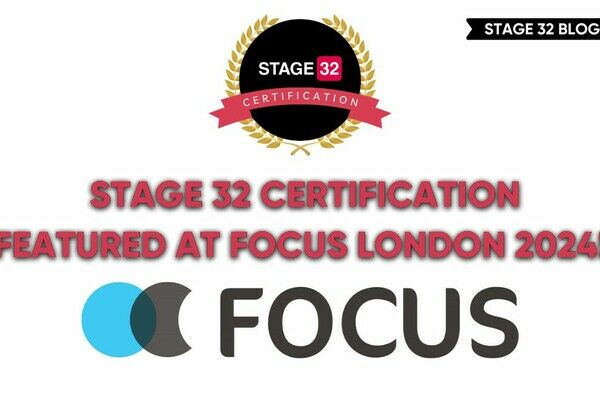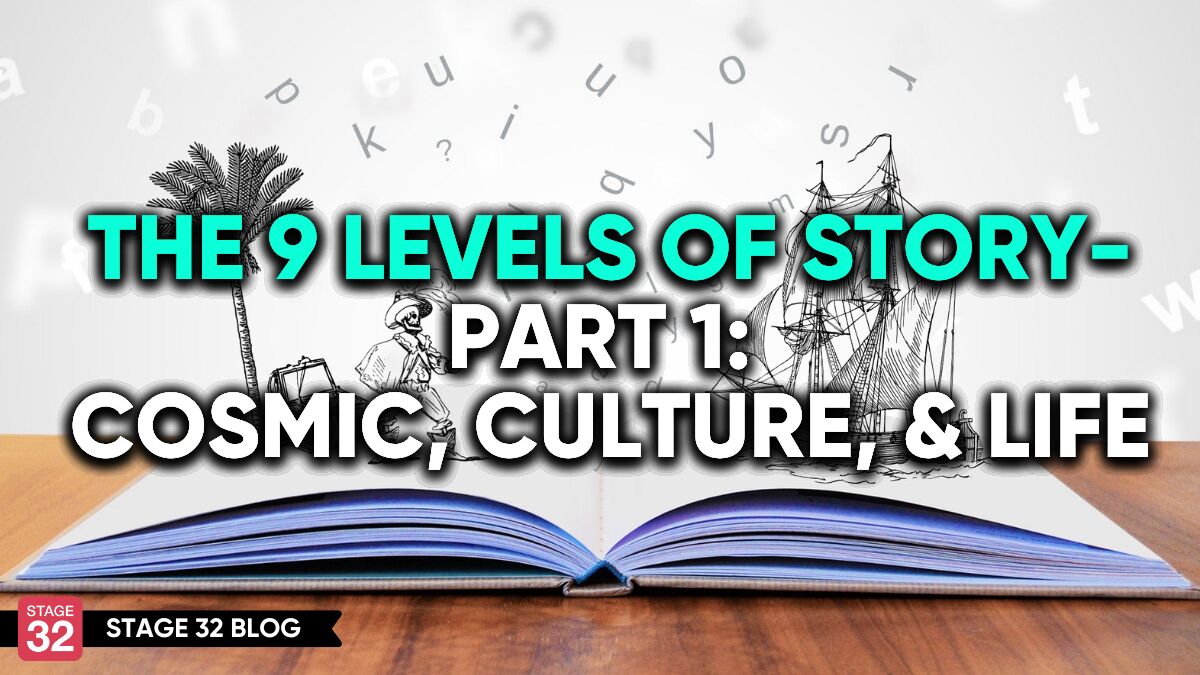The 9 Levels Of Story- Part 1: Cosmic, Culture, & Life
Embarking on the journey of becoming a successful screenwriter involves delving into the intricacies of storytelling at various levels. From the cosmic truths that shape narratives to the communal values inherent in cultures, and the quest for purpose within characters' lives, the 9 Levels of Story offer a framework for aspiring creatives. To help you understand these levels better, I'll be discussing them over the next few weeks in a 3-part blog series.
By better understanding cosmic, culture, and life, the first three levels of storytelling, I believe screenwriters can hone their craft and imbue their scripts with depth and resonance.
I hope you'll join me in this first blog as I unravel the cosmic secrets, cultural nuances, and existential quests that underpin the art of storytelling, paving the way for you to elevate your narratives to new heights.

Level 1: Discovering The Cosmic Level - Uncovering Truth & Reality
At the cosmic level, screenwriters are tasked with exploring the universal truths that resonate across time and space. In other terms, it's about digging deep into themes that reflect the human condition. Themes like love, justice, freedom, and redemption. By uncovering these timeless truths, you create a foundation for your story that speaks to audiences on a fundamental level.
This isn't about facts and figures; it's about the essence of reality as you perceive it. Think of it as the gravitational center of your narrative, pulling everything toward a coherent, powerful message. When you tap into these cosmic elements, you're not just writing a story; you're crafting a myth, a tale that holds the potential to echo through the ages. As a shortcut for your success, you should consider this as the COSMOLOGY of your Project.
The kind of questions to ask yourself or research at this early stage are:
- What is a Universal Truth?
- What is a Universal Theme?
- How does a writer define the Human Condition?
- What is the Writer’s Journey?
- What is the Hero's Journey?
- What’s the difference between the Writer’s Journey and the Hero's Journey?
- What is a Myth?
- What is Mythology and why is it important to the Writer’s Journey?

Level 2: Delving Into The Culture Level - Communal Values Rooted In Truth & Reality
At the culture level, the storytelling journey delves into the shared values and beliefs that define a community or society. This is where you explore how your characters' lives are shaped by the world around them, their customs, traditions, and social norms. It's crucial to understand how these cultural dynamics support and conflict with the universal truths identified at the cosmic level. One level of storytelling will always build to the next.
As a screenwriter, your challenge is to weave these communal values into your narrative in a way that enriches your characters' experiences and choices. This level is about authenticity and specificity; by accurately representing the cultural context, you give your story a solid ground to stand on and allow your audience to see their world reflected in your work.
The kind of questions to ask yourself or research at this second stage are:
- What is Culture and why is it important to a Writer’s Journey?
- What are Communal Values?
- What are Cultural Dynamics?
- Why are Authenticity and Specificity important to a Writer’s skillset?

Level 3: Navigating The Life Level - The Quest For Purpose
Moving to the life level, you should focus on individual characters and their personal journeys. This is where the quest for purpose becomes central to the narrative. Each character's arc is a search for meaning in a chaotic world, driven by their unique desires, fears, and challenges.
At this level, you must craft a compelling motivation for each character, one that audiences can relate to and root for. The life level is about the internal struggles that push characters toward growth or change. It's about the choices they make in pursuit of their goals, how they overcome obstacles, and the consequences of their actions.
By navigating this level skillfully, you create a story that's not just about events, but about the transformative power of choice. It creates a journey that resonates with viewers because it mirrors their own search for purpose.
The kind of questions to ask yourself or research at this third stage are:
- Why should Characters have personal journeys and self-revelations?
- What is a Character Arc?
- Why is a Character Arc necessary?
- What is a Character Motivation?
- Why do Characters have internal struggles?
- What’s the difference between a Goal, an internal struggle, an obstacle, a consequence, and an action?
- What’s the difference between a Story Transformation, a Character Self-Revelation, and an Audience Revelation?
Stay tuned for more!

Let's hear your thoughts in the comments below!
Got an idea for a post? Or have you collaborated with Stage 32 members to create a project? We'd love to hear about it. Email Emily at blog@stage32.com and let's get your post published!
Please help support your fellow Stage 32ers by sharing this on social. Check out the social media buttons at the top to share on Instagram @stage32 Twitter @stage32 Facebook @stage32 and LinkedIn @stage-32
| How To Attract Allies In The Film Industry |
| Stage 32 Certification Welcomes The Polish Film Institute! |
Search Stage 32 Blog
There are now 3693 blog posts for you to enjoy. Search them all by tags below.
Acting, Advice, Cinematography, Coffee & Content, Composing, Contests, Distribution, Featured, Filmmaking, Financing, Inspirational, Networking, Producing, Screenwriting, Success Stories, Tips, Trending,Relevant Tags
Recommended Articles

The Economics of Short Films

Celebrate the December 2024 Stage 32 Community’s Successes

Why Filmmakers Must Study Birdman: Lessons in Screenwriting, Dark Humor, and Storytelling

The Rise & Struggle of Independent Filmmakers: Sustaining Creativity in a Studio-Dominated World

How Did You Get That Gig?

Coffee & Content: When They Double Down, You Triple Down!

Forgive and Flourish: A Guide to Holiday Healing

Stage 32 Certification at Focus London 2024!

Embracing Unexpected Opportunities In Your Career






